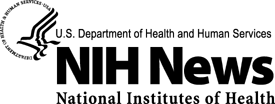Thursday, June 2, 2011
New NIH program makes it easier to talk about a difficult GI problem
A new program to help patients and health care professionals feel more comfortable talking about bowel control problems is now available from the National Institutes of Health.
Bowel control problems affect an estimated 18 million U.S. adults — 1 out of 12 people. People with bowel control problems are often reluctant to discuss the condition, even with their doctor. The Bowel Control Awareness Campaign and its Web resources raises awareness of bowel control problems, also known as fecal incontinence. Women and older adults are at risk for developing fecal incontinence. Increased body mass, decreased physical activity, depression, and diabetes may also increase risk.
The awareness campaign stems from the recommendations of an independent panel of experts convened by the NIH to assess the current prevalence, risk factors, diagnosis, treatment, and management of the condition.
"Fecal incontinence is a significant public health burden in the United States—affecting close to 10 percent of the adult population over 40 years old," said Griffin P. Rodgers, M.D., director of the National Institute of Diabetes and Digestive and Kidney Diseases (NIDDK), the NIH Institute leading the effort. "The Bowel Control Awareness Campaign's main objective is raising public awareness to aid in prevention of incontinence and to improve the lives of men and women living with the condition."
Developed by the NIDDK, along with professional and voluntary organizations that focus on fecal incontinence, the awareness campaign offers the following resources about the symptoms, diagnosis, treatment, and management of bowel control problems for patients and health care professionals:
- A fact sheet on fecal incontinence
- An easy-to-read booklet on bowel control
- A flyer about bowel control for health fairs
- NIH bowel control research information
- Links to professional and voluntary organization
These resources are available through the Awareness Campaign’s website at www.bowelcontrol.nih.gov and the National Digestive Diseases Information Clearinghouse's website at www.digestive.niddk.nih.gov.
The embarrassment associated with fecal incontinence can have a crippling impact on quality of life for millions, and the condition is believed to be widely under-diagnosed.
"The lack of communication between health care professionals and patients appears to be one of the main challenges with bowel control problems. Being able to talk about the problem is the first step in both prevention and treatment," said Stephen P. James, M.D., director of the Division of Digestive Diseases and Nutrition at the NIDDK. "People experiencing bowel control problems need to know they are not alone and that the condition can be managed. The Bowel Control Awareness Campaign will inform health care professionals and the public that bowel incontinence is a common condition and that effective treatments are available."
NIDDK, part of NIH, conducts and supports basic and clinical research and research training on some of the most common, severe and disabling conditions affecting Americans. The Institute's research interests include: diabetes and other endocrine and metabolic diseases; digestive diseases, nutrition, and obesity; and kidney, urologic and hematologic diseases. For more information, visit www.niddk.nih.gov.
About the National Institutes of Health (NIH): NIH, the nation's medical research agency, includes 27 Institutes and Centers and is a component of the U.S. Department of Health and Human Services. NIH is the primary federal agency conducting and supporting basic, clinical, and translational medical research, and is investigating the causes, treatments, and cures for both common and rare diseases. For more information about NIH and its programs, visit www.nih.gov.
NIH...Turning Discovery Into Health ®
###

